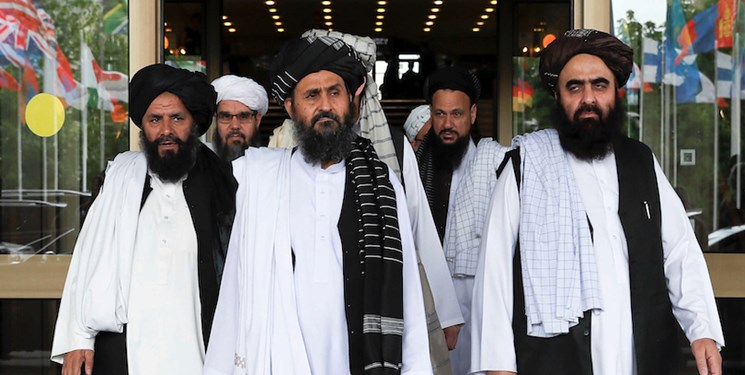AhlulBayt News Agency (ABNA): Over two months after seizing the capital Kabul, Taliban is still struggling for formation of a new government and recognition as a legitimate power holder in Afghanistan by the international community. But so far, even its closest ally Pakistan has not yet recognized the group.
Meanwhile, in the latest efforts, Amir Khan Mottaqi, the acting foreign minister of the Taliban, headed a political delegation to Turkey on October 14. This trip, one of the first diplomatic trips of Taliban leaders as the new rulers of Afghanistan, is of special importance. However, the way Turkey welcomed and hosted the delegation, which was ostensibly cold and did not take into account the necessary formalities of official diplomatic visits, had its own messages for the government of Taliban, officially calling itself Islamic Emirate. But what are the goals behind the visit?
Breaking political isolation in search of legitimacy
Certainly, any diplomatic move made now by the group is aimed at gaining international legitimacy for their newly-founded government. In recent days, the Taliban negotiators have held talks with the US, the European Union, and Britain in Doha, Qatar. In the talks, the Taliban called for the release of the frozen central bank assets and reserves, humanitarian aid, and engagement with the newly-formed government. The trip to Turkey is a sequel to those efforts and looks serious in seeking international legitimacy.
Erdogan’s record of support for Salafi groups and Taliban optimism
Taliban sound upbeat about the Turkish help and recognition as they are well aware of the record of the Turkish President Recep Tayyip Erdogan’s backing for Salafi groups.
Erdogan’s Turkey has established a wide range of strategic and tactical cooperation with Salafi groups and takfiri movements in recent years. There is even evidence of cooperation between Turkey and ISIS, al-Qaeda, and other extremist groups, all recognized by the international community as terrorist group, in the war-weary Syria. Despite dominating the capital Kabul and most of Afghanistan, the Taliban is not currently recognized internationally as the ruler of Afghanistan. The group is hopeful that Ankara backs it at least clandestinely.
Turkey cautious about closeness to the Taliban
The hypocritical behavior of the Turkish government, namely cold reception in front of the media and heated talks behind the scenes, stems from a kind of duality rooted in the country’s foreign policy. On the one hand, Ankara seeks to put up a democratic face and tell the world community, especially the US and Europe, that it is conservative in dealing with the Taliban and intends to weigh up the actions of the Taliban in accordance with the human rights standards.
"We've been explaining to the international community the importance of engaging with the current Taliban administration, and the international community, biased and neutral, is already in this position," said Foreign Minister Mevlut Cavusoglu of Turkey. Last month, he said that Turkey raised education of girls and empowerment of women with the group. These remarks very well reveal the Turkish intention to pose as a human rights advocate.
In fact, Turkey is trying to commit itself to cooperating with the West in Afghanistan and to acquit itself of working closely with the Taliban. That may explain why the Taliban did not receive any official welcome from the Taliban and only a few photos were published. Even Cavusoglu was insistent that the Taliban had requested a visit to Ankara and that no invitation had been sent to them from Ankara.
On the other hand, Islamism and seeking strategic depth in the Muslim world is another part of the Turkish foreign policy over the years of Erdogan leadership. By inviting the Taliban to Turkey, Erdogan and Ankara, actually, intend to present themselves as the “big brother” in the Muslim world. Erdogan dreams of a caliphate rule over the Muslim world in a modern shape.
The US military defeat and withdrawal from Afghanistan has been welcomed by most of the Islamist groups in the region, and there is no doubt that Ankara's tendency to cooperate with the Taliban carries Turkey’s well reception of this issue. Cavusoglu’s announcement of sending 33,000 tons of humanitarian aids to Afghanistan via Pakistan by the Turkish Red Crescent is part of this cooperation development.
Also, Turkey is eyeing geopolitical and economic interests for a toehold in Afghanistan. The Turkic-speaking countries, labeled by Turkey as the “Turkic world” share borders with Afghanistan and Turkey is seeking to exploit the Afghan capacities to shore up its presence in this region. Also, Afghanistan shares borders with China, Pakistan, and India, three of which being destinations of the Turkish products and major Turkey trade partners in the future.
/129

